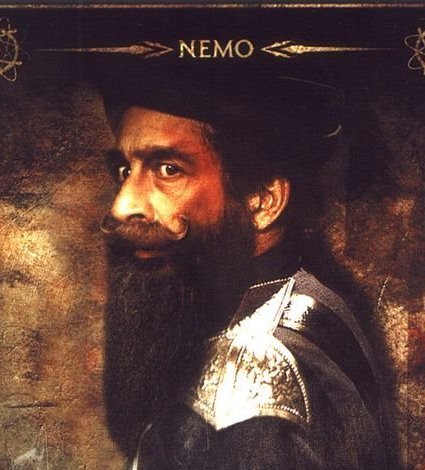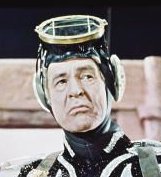“I am the law, and I am the judge! I am the oppressed, and there is the oppressor! Through him I have lost all that I loved, cherished, and venerated—country, wife, children, father, and mother. I saw all perish! All that I hate is here!”
- Captain Nemo
from 20,000 Leagues Under the Sea
Prince Dakkar
In most texts, Nemo appears that he has a deep hatred for the British Empire, but the reason for his hatred is only revealed in The Mysterious Island. Prince Dakkar’s father was a rajah of an independent territory in India known as Bundelkund. In 1857, Prince Dakkar joined the masses of India as they rebelled against the intrusion of the British Empire. However, by 1858, the British had suppressed the rebellion, a resistance that had cost Prince Dakkar his family and kingdom. Searching for liberty from the British, he retreated into the sea, leaving “Prince Dakkar,” on the upper world. Beneath the water, he called himself “Captain Nemo” and escaped the laws and oppression of British, and other imperialist nations. The sea became his outlet of freedom, his fortress from the injustices of the world above him.
|
|
Patrick Stewart as Captain Nemo in Mysterious Island (2005). |
|
The Significance of Race
In the original novels by Jules Verne and some other adaptations, Captain Nemo is an Indian. However, in most film adaptations, he is portrayed as a Caucasian. The reason for this racial difference can be explained by Nemo’s role. He is an independent man who excels in fields of science. He holds a high moral code and sympathizes with the oppressed. His ideas and notions toward the world come from the point of view of an intellectual. From this personality, it seems Nemo’s traits are characteristic of a Caucasian intellectual. The British Empire imposed a hierarchy in all its controlled territories that made whites superior to non-whites. Whites were educated and well-mannered. They were more “civilized” than their counterparts. Portraying Nemo as a Caucasian simply presents him as the stereotypical educated European. As an Indian however, he defies this hierarchy constructed by the British Empire. The assumed notion by this structure is that the natives of India are beneath Europeans. Nemo, who is an exceptional scientist and cultured intellectual, breaks away from the British stereotype of the Indian native. He isn’t bounded by the same British laws that control India. He does not allow himself to succumb to the oppression of the British Empire.


